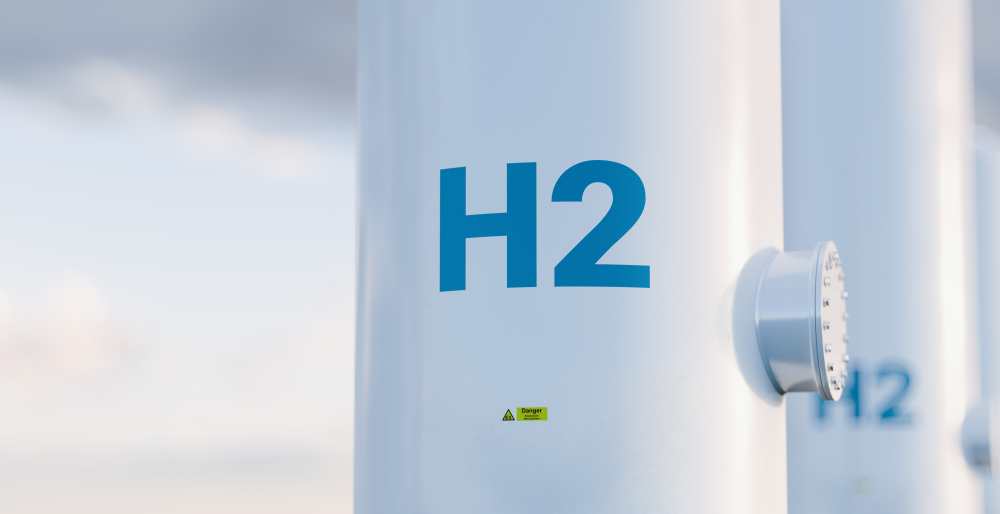Businesses Must Shift to Green Today to Have a Future Tomorrow

The time for businesses, especially small- and medium-sized companies, to think about a shift to renewable energy is here. Industry insiders tell the Budapest Business Journal that adopting green energy now may be the key to staying on the market in a decade’s time.
Károly Kovács
The coronavirus lockdown forced us into a completely different way of living our life. Some of that learning must be directed towards better planning in the future, says Károly Kovács, project leader of GreenTech Zalaegerszeg Green Energy and Sustainability Conference.
“COVID-19 has been a good reminder for this: What are the things that are absolutely necessary to handle in person, riding around in the cities in our cars,” he tells the Budapest Business Journal.
“Becoming more mindful of our actions during this period can help encourage a greener mindset, so we care more for our environment and each other,” Kovács adds.
This increased mindfulness needs more attention. “The pandemic situation raised our awareness of the vulnerability of our environmental and economical ecosystem. This is a great opportunity to change the traditional business models to sustainable, innovative and carbon-neutral business strategies,” Lóránt Riesz, project development lead for PANNON Pro Innovations Ltd., argues.
But sustainability is seen as being costly, especially for an SME in a period when survival is the number one priority as it works through the economic effects of the pandemic. Furthermore, ROI can take years.
“When we talk about SMEs, and this is particularly true for the ones operating outside the capital, given the lack of resources, both financial and human, changing to sustainable solutions is difficult. However, what we see is that if there is willingness on the owners’ side; they make steps in their abilities towards green energy,” Kovács of GreenTech notes. And at least some of those steps can be relatively straightforward.

Katalin Cseh
Simple Measures
“There are a number of simple measures that could make any SME operate in a more sustainable manner at no significant extra cost. Single use plastics, or unsustainable packaging materials are still widely used in the SME sector, although there are available affordable alternatives,” says Katalin Cseh, a Momentum party Member of the European Parliament, and vice-chair of the Renew Europe Group.
It is also worth remarking that the European Union is banning single use plastics by 2021. Companies will have to comply.
“Installing smart plugs and outlets, as well as acquiring a smart meter is a quick and easy way to monitor your energy data real time as well as your monthly consumption,” Cseh adds. She believes that once companies realize how much energy they consume, it will make sense for them to cut back on energy use, depending on the season and the timing of the daily peaks of consumption. Doing so may help change minds.
If they have not started yet, mindsets will need to change very soon. Why? “Customer demand is changing; an increased number of people are looking for sustainable, green and climate-friendly products. Even if they do not necessarily pay more for a product, just because it’s green, they punish those that aren’t those that aren’t by boycotting them,” Riesz says.
This is also true for employees and business partners. Today, sustainability is believed to be a secret to long-term success and maximizing profits. Some experts say that building a business model on traditional, linear and fossil dependent processes risks the competitiveness of a company.
“Sustainability is also an opportunity to engage customers in a non-traditional way and position an SME as an innovative and sustainable brand,” Riesz insists.
When it comes to renewable energy, Hungary is chiefly dominated by photovoltaic, or PV, systems in which solar panels use insolation for generating electricity.
“Most international investors are eager to compete on upcoming tenders, however if Hungary doesn’t want to lose its competitive advantage it must eliminate constraints of PPAs [Power Purchase Agreements, contracts to buy power from a renewable generator] too,” István Pócs, business development director at PANNON Green Power Ltd., tells the BBJ.

Lóránt Riesz
Legal Barrier
“For major players, the minimum capacity size is 50 MW, but this is the maximum limit of the tender. So larger projects with fully market backed PPAs, which are the cheapest solutions for consumers too, should be approaching us rapidly, by their very nature. However, actual legislation negatively discriminates against PPAs,” Pócs adds.
“A Robin Hood tax, which originally targeted large fossil producers in the energy sector, but excluded green producers through their subsidies, is still in force. The crazy situation though is that if you are receiving a subsidy through tender from the state, you don’t need to pay the Robin Hood tax. However, if you don’t ask for any subsidy, you will pay,” he says.
Hungary’s process of businesses going greener lags behind companies in Western Europe. Firms need to act quickly as customers increasingly expect them to become more sustainable.
“For instance, those SMEs that are working actively to mitigate or offset their carbon footprint will attract more customers as the sustainability principle is fast becoming a guiding factor in how we live,” MEP Cseh says. “Going greener will also facilitate innovation, and innovation is good for business,” she adds.
A sustainable company may simply do better business today through an improved image in the eyes of its clientele. But in the mid-term, sustainability could be a necessity.
“Those companies who do not start becoming greener in the short-term, considering the pace of their own industries in this regard, in the middle-term will be in a difficult competitive position,” Kovács insists.
Companies who miss out on the sustainability bandwagon today, may need to close shutters in five to 10 years, trumped by greener peers and EU regulations.

István Pócs
SUPPORT THE BUDAPEST BUSINESS JOURNAL
Producing journalism that is worthy of the name is a costly business. For 27 years, the publishers, editors and reporters of the Budapest Business Journal have striven to bring you business news that works, information that you can trust, that is factual, accurate and presented without fear or favor.
Newspaper organizations across the globe have struggled to find a business model that allows them to continue to excel, without compromising their ability to perform. Most recently, some have experimented with the idea of involving their most important stakeholders, their readers.
We would like to offer that same opportunity to our readers. We would like to invite you to help us deliver the quality business journalism you require. Hit our Support the BBJ button and you can choose the how much and how often you send us your contributions.









